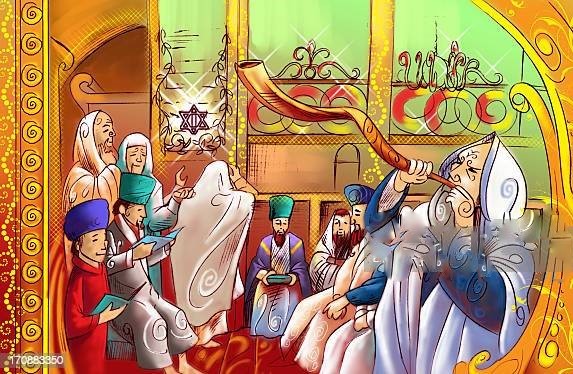📖 SATURDAY PRAYER: YESOD-YESHIVAT HAVERIM יְשִׁיבָה חברים – BABYLONIAN TALMUD p181

READING: BETWEEN MIDNIGHT AND DAWN OF SATURDAY
“Also a woman who braids her hair,” etc. In what category can her work be counted? Said R.
Abuhu: “It was explained to me by R. Jossi b. Hanina: ‘Painting the eyebrows comes in the class
of work enumerated as dyeing, braiding, and parting the hair in the class of building.'” Is this the
manner of building? Yea; as R. Simeon b. Menassia taught: It is written [Gen. ii. 22] “And the
Lord God formed 1 the rib which he had taken from the man.” From this maybe adduced that the
Holy One, blessed be He, braided the hair of Eve and brought her to Adam. For in the seaports
hair braiding and dressing is called building.
We have learned in a Boraitha, R. Simeon b. Elazar said: “Braiding the hair, painting the
eyebrows, and parting the hair, if done for herself, does not make her culpable (because it cannot
be properly termed building); but if done for another it does make her culpable.” Furthermore,
R. Simeon b. Elazar said in the name of R. Eliezer: “A woman shall not put red dye on her face,
because that constitutes painting.”
The rabbis taught: If one milked a cow and then made cheese of the milk to the size of a dried
fig; if he swept a floor or dampened a floor (to lay the dust); or if he removed honeycombs from
a beehive, his case is as follows: If he performed these acts unintentionally on Sabbath, he is
bound to bring a sin-offering, and if he did all this intentionally on a biblical feast-day, he shall
receive forty stripes. Such is the opinion of R. Eliezer, but the sages said: “All this is only
prohibited by rabbinical law as a precautionary measure.” (Says the Gemara:) Now the
ordinance having prevailed according to the opinion of R. Simeon, all these acts are not
prohibited at all.
MISHNA VIII.: One who plucks something from a perforated flower-pot is culpable; from a
flower-pot that is not perforated he is not culpable. R. Simeon held him not culpable in both
cases.
Abayi put a contradictory question to Rabha, according to others R. Hyya b. Rabh to his father
Rabh: “The Mishna states that R. Simeon holds one not culpable in either case. From this we see well that to R. Simeon a perforated or a solid flower-pot is one and the same thing. We have learned in another Boraitha: